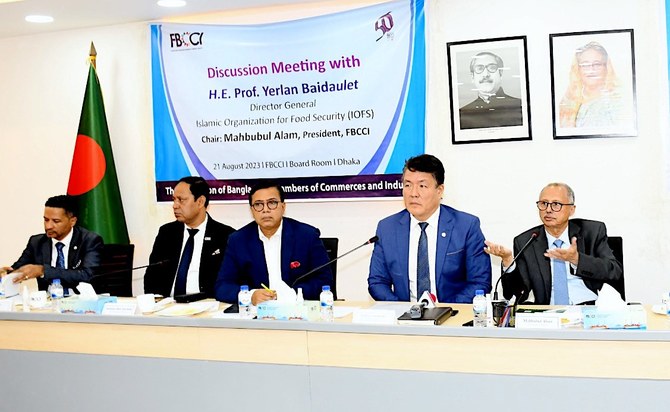
 "
"

 "
"

Bangladesh’s halal food industry is on the brink of expansion, according to the nation’s primary trade entity’s statement on Tuesday, as it becomes a member of the International Islamic Food Processing Association.
Headquartered in the UAE, the IFPA operates under the umbrella of the Islamic Organization for Food Security. Its objective is to enhance trade and investment among agricultural and food sector enterprises across member nations of the Organization of Islamic Cooperation (OIC).
The Federation of Bangladesh Chambers of Commerce and Industry (FBCCI) formalized its membership with the association in Dhaka on Monday.
Mohammad Amin Helali, the FBCCI’s Senior Vice President, informed Arab News that affiliation with the association will enable Bangladeshi enterprises to enter the global halal food market. This market is projected to be valued at nearly $2 trillion and is anticipated to double within the next five years.
In contemporary times, the halal food concept is gaining traction among consumers worldwide. Helali underscored that halal signifies safe food, devoid of harmful elements, and is gaining international recognition.
“Our enterprises, engaged in the production of halal and safe food, will have the opportunity to expand further by accessing financial aids such as loans, grants, and more. This membership will also keep us updated regarding the latest Islamic perspectives on halal food guidelines.”
Bangladesh’s Standard and Testing Institution has already received approval from the Islamic Organization for Food Security to certify halal food products in the country. This recognition is projected to heighten Bangladesh’s competitiveness in accordance with IFPA standards.
Halal food adheres to Islamic dietary laws. However, the global halal food market, particularly in meat, remains predominantly controlled by non-OIC nations.
“At present, non-Muslim countries like India and Brazil are major players in the halal meat industry. Therefore, if we can meet IFPA’s stringent halal food standards, we will significantly improve our prospects of tapping into the global market,” remarked Helali.
“Our producers will be able to adhere to the regulations of halal food production, thus bolstering our presence in the international halal food market, including within Middle Eastern nations.”